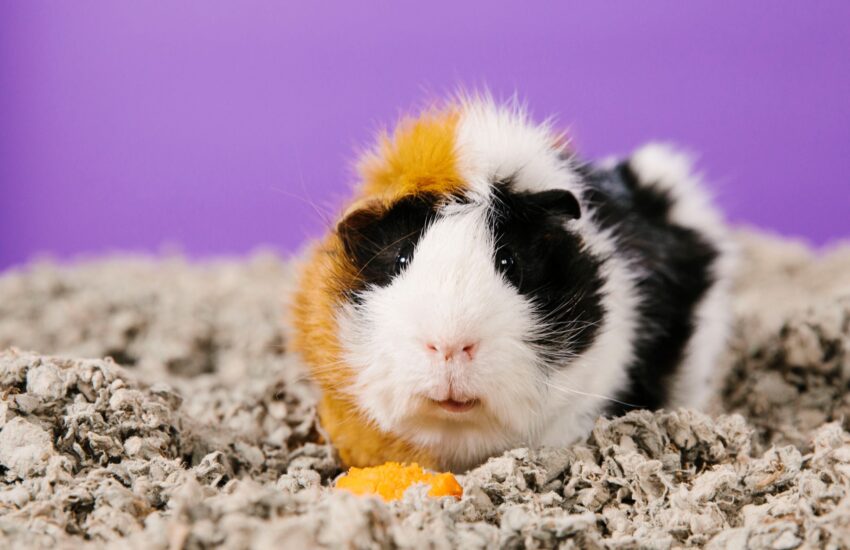Best Hamster Types for Love and Care
Hamsters have captured the hearts of countless pet lovers around the world. Their small size, adorable features, and engaging personalities make them perfect companions. But not all hamsters are created equal, and choosing the right type is paramount for ensuring you provide them with the love and care they deserve. In this article, we’ll explore the best hamster types, their unique traits, and the specific care they require. Whether you are a seasoned hamster owner or a beginner, this guide will help you make an informed decision.
According to a study by the American Veterinary Medical Association, hamsters are one of the top five pets in America. This popularity is attributed not just to their cute appearance, but also their relatively low maintenance requirements. However, different types of hamsters come with distinct needs and quirks that potential owners should be aware of.
From the small and lively Campbell’s dwarf hamster to the larger and more docile Syrian hamster, the variety of these small creatures ensures that there is a perfect pet for everyone. This article will cover the different types of hamsters, how to care for them, their habitats, and much more. By the end, you will have a good understanding of which hamster type is right for you and how to provide the best environment for your furry friend.
Let’s delve into the enchanting world of hamsters and discover the best hamster types for love and care.
1. Syrian Hamster
Overview: Syrian hamsters, also known as golden hamsters, are one of the most popular pet hamster breeds. They are typically larger than other types, growing up to 6-7 inches long.
Characteristics
- Appearance: They have fluffy coats that can vary in color from golden to black, and they possess a distinctive cheek pouch for storing food.
- Temperament: Generally friendly and can become quite affectionate with regular handling.
- Lifespan: Typically live 2-3 years.
Care Tips
- Housing: They thrive in spacious cages, ideally 24 inches by 12 inches.
- Diet: A balanced diet consisting of hamster pellets, fresh fruits, and vegetables is essential.
- Socialization: Regular interaction helps them become tame.
For more information on caring for Syrian hamsters, check out this resource.
2. Campbell’s Dwarf Hamster
Overview: Campbell’s dwarf hamsters are extremely small, typically growing to about 3-4 inches in size. They are known for their playful and energetic demeanor.
Characteristics
- Appearance: They have a round body and are generally more robust compared to other dwarf species.
- Temperament: Can be somewhat territorial and may require careful introductions if you plan to keep more than one.
- Lifespan: They usually live for 1.5 to 2 years.
Care Tips
- Housing: A cage that has multiple levels and hiding spots is recommended to keep them entertained.
- Diet: A mixture of pellets, seeds, and fresh vegetables should be provided.
- Playtime: Regular exercise in a safe environment is necessary, such as a hamster ball.
To learn more about Campbell’s dwarf hamsters, visit this link.
3. Roborovski Dwarf Hamster
Overview: Roborovski hamsters are the smallest of all hamster breeds, measuring only about 2 inches in size. They are incredibly fast and agile.
Characteristics
- Appearance: Their fur is typically sandy in color, with white markings on their belly.
- Temperament: They are more suited to a hands-off approach as they can be skittish when handled.
- Lifespan: Roborovski hamsters tend to live longer, around 3 to 4 years.
Care Tips
- Housing: They require a larger setup due to their high energy levels and love for exploration.
- Diet: Similar to other dwarfs, they thrive on a diet of seeds, pellets, and occasional treats.
- Socialization: They can be kept in pairs or small groups if they are introduced early on.
4. Chinese Hamster
Overview: Chinese hamsters are somewhat rare as pets, but they can be wonderful companions. They grow to about 4-5 inches long and have long tails.
Characteristics
- Appearance: They have a unique body shape and are known for their thin, long tails and small feet.
- Temperament: Generally friendly but might be skittish with new owners.
- Lifespan: They typically live around 2-3 years.
Care Tips
- Housing: Provide a multi-level cage with plenty of hiding spaces.
- Diet: A specialized hamster mix along with fresh fruits and vegetables will benefit them.
- Handling: Regular handling and gentle interactions can help them adapt to human contact.
5. Winter White Dwarf Hamster
Overview: Initially found in the wild in Siberia, Winter White dwarf hamsters are known for their ability to change fur color during winter months, displaying a beautiful, snowy coat.
Characteristics
- Appearance: Small and chubby with a unique color changing ability that enhances their appeal.
- Temperament: Friendly and can be very social when handled frequently.
- Lifespan: Usually around 2-3 years.
Care Tips
- Housing: Provide adequate space for running and burrowing, as they are naturally active.
- Diet: A balanced diet similar to other dwarf hamsters.
- Interaction: Early handling and socialization will help maintain their friendly disposition.
Conclusion
Selecting the right type of hamster is essential for ensuring that you can provide the love and care they need. Each breed has its own unique characteristics and care requirements, making it vital to choose one that fits your lifestyle and expectations. From the affectionate Syrian hamster to the speedy Roborovski, every type offers its own joys and challenges.
By following the care tips outlined in this article – such as providing a spacious habitat, a balanced diet, and regular interaction – you can give your new pet a happy and healthy life. Remember, each hamster is an individual and may have different needs, so be attentive and flexible in your care approach.
As you embark on this exciting journey of hamster ownership, remember that they’re not just animals—they can become cherished members of your family. With proper care, they will repay you with endless love and companionship.

